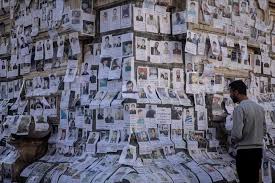As Syria steps hesitantly into its post-Assad chapter, the country finds itself standing on a perilous threshold. Fourteen years of war, atrocity, and social fragmentation have not only decimated institutions and lives but also sown the seeds of a far more insidious danger: a culture of vengeance, sanctified hatred, and societal implosion. In this delicate interregnum, calls for transitional justice are gaining momentum—but so too are the countercurrents of digital incitement and populist rage.
In a powerful piece titled “Syrians Trapped in the Machinery of Hate,” journalist Malek al-Hafez draws an alarming portrait of a society at risk of moral collapse. His essay likens the current wave of hate speech proliferating across Syrian social media to the genocidal propaganda of Rwanda’s infamous Radio Télévision Libre des Mille Collines. While Syria has not descended into mass communal violence of that kind, Hafez warns that the same dynamics—dehumanisation, hero-worship, and digitally weaponised tribalism—are poisoning the country’s already fragile public discourse.
He identifies the glorification of individuals—whether political leaders, local strongmen, or religious figures—as a central obstacle to national reconciliation. “When we sanctify individuals,” Hafez writes, “we become unwitting agents of hatred toward anyone who does not share our veneration.” In such a climate, dissent is construed not as a democratic right but as treason against the collective identity. Digital mobs, fuelled by influencers with no ethical or intellectual grounding, now operate as enforcers of ideological conformity, often targeting women with brutal campaigns of character assassination and gender-based abuse.
This digital hostility intersects tragically with the legal and political vacuum that defines Syria’s post-conflict moment. Fadel Abdul Ghany, head of the Syrian Network for Human Rights, addresses this in his extensive policy proposal “Transitional Justice in Syria: A National Imperative to Prevent Revenge and Secure Post-Conflict Stability.” His central concern is clear: without a robust, institutionalised mechanism for justice, Syria is on the verge of entering a new phase of lawless retribution.
Citing data compiled over more than a decade of war, Abdul Ghany documents the staggering scale of state-perpetrated atrocities—over 200,000 civilian deaths, more than 150,000 forced disappearances, and the systemic use of chemical and prohibited weapons. These are not abstract numbers but open wounds in Syria’s collective consciousness. He notes with urgency that acts of revenge are already being reported in cities like Homs, Aleppo, and the coastal regions—areas where unresolved grievances risk evolving into cycles of retaliatory violence. Without a credible path to justice, he warns, the very idea of national peace will collapse under the weight of vengeance.
Abdul Ghany advocates the swift establishment of a National Transitional Justice Commission with four strategic pillars: criminal accountability via mixed tribunals, truth and reconciliation processes, comprehensive reparations, and institutional reform. He is especially attuned to the political realities of Syria’s delicate transition, emphasising the need for carefully sequenced implementation to prevent overwhelming the country’s fledgling institutions.
Echoing this view, legal scholar and veteran human rights advocate Radwan Ziadeh offers a more targeted roadmap in his article “The Urgent Need to Establish a Transitional Justice Commission in Syria Today.” Ziadeh focuses on the immediate political moment: the formation of such a commission, he argues, must happen now—during what he calls Syria’s “narrow historical window” of opportunity. He references statements by President Ahmad al-Sharaa and clauses in the new constitutional declaration that commit to such a body, warning that further delay could make justice structurally impossible.
Ziadeh emphasises the need for the commission to serve both legal and symbolic purposes. It must provide a formal framework to prosecute major perpetrators of war crimes and crimes against humanity—including notorious figures still at large within Syria—but it must also offer victims a public platform for truth-telling, catharsis, and remembrance. He proposes the creation of public hearings, truth commissions, and national remembrance initiatives such as memorials and commemorative days to reinforce collective memory and prevent historical revisionism.
Finally, Moatasem al-Kilani, in a widely circulated Facebook statement, distills the moral imperative driving these initiatives: “Justice is not optional. It is the foundation of any sustainable peace.” Kilani calls for the commission to be genuinely inclusive, transparent, and free from sectarian bias. He insists that no member implicated in past violations should be allowed a role in shaping Syria’s justice mechanisms. His plea to the transitional leadership is blunt but vital: “You are not merely crafting a legal body—you are shaping Syria’s moral compass.”
Together, these voices highlight a fundamental truth: justice in Syria must not be viewed as a distraction from reconstruction or an impediment to stability. On the contrary, it is the prerequisite for both. Without reckoning, there will be no reconciliation. Without reconciliation, no state can stand.
What Syria faces today is not simply the challenge of rebuilding roads, courts, and ministries. It must also reconstruct its sense of self—as a nation not of warring sects or partisan mobs, but of citizens. That task cannot succeed without confronting the twin evils of impunity and hatred. Transitional justice, in all its complexity, remains Syria’s only credible bridge from a legacy of ruin to the possibility of a future worth living.


